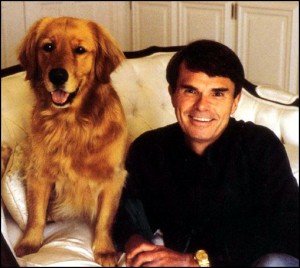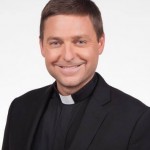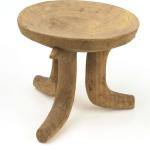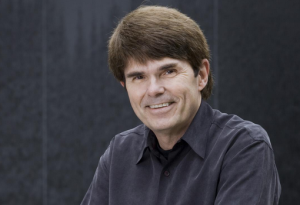 “The dark makes the light stuff brighter.”
“The dark makes the light stuff brighter.”
Not only is that a comment made by a character in Dean Koontz’s latest novel “The City,” it’s a truth that the author learned first-hand while growing up.
In “The City,” eight-year-old African-American musical prodigy Jonah Kirk is blessed with a mother and grandparents who selflessly love and support him. His father Tilton, however, epitomizes the adult who never grows up, who never accepts responsibility for anyone or anything other than the pursuit of his own pleasure. Jonah sees these traits in his father and, understandably, resents him.
Dean can relate to Jonah here. During an interview on “Christopher Closeup,” he recalled that his mother was a wonderful woman, but his father was a “violent alcoholic” who was also a “gambler and womanizer,” resulting in his family living in poverty. The worst part for Dean wasn’t his family’s unstable financial situation, though; it was the fact that he lived in a small town where everybody knew everybody else’s business, leaving him in an “almost constant [state of] humiliation or embarrassment” at his father’s actions.
And yet, Dean wouldn’t change his childhood even if he could. He said, “There’s a temptation to think how much better my life would have been, or how much more I would have achieved if I’d had a rosier childhood. But then I think, ‘No, if I hadn’t had my dad’s example, I might have gone that way.’…That is where I was able to clearly see that there is good and evil in the world; there are not just shades of gray. As a consequence, I think it helped me a great deal as a writer to have grown up in that environment.”
Happiness is a Choice
Another lesson Dean learned that worked it’s way into Jonah Kirk’s outlook on life has to do with attitude. He said, “People tend to think I had an unhappy childhood…[but] when I look back on it, I could always find something to make me happy. I think you make a choice in life at a certain point. You [realize that] bad things happen to good people. You can either become embittered by it – or you can find the beauty in life, which is at all times all around you. In ‘The City,’ that’s Jonah’s strength.”
In fact, much of Jonah’s relationship with his mother reflects Dean’s feelings about his own mother – even though he didn’t realize it while he was writing. He attributes that disconnect to “the activity of grace,” which allowed him to create the story “without too much sticky sentimentality and try to keep it real. That’s one of the reasons I find writing fascinating. You are in touch with some creativity at times that seems…to be much more complex and interesting than my creativity.”
Believing in Something Bigger Than Us
Dean Koontz’s supernatural outlook on life weaves its way into all his books, and “The City” is no exception. A Catholic convert, he views the world through the eyes of faith and subtly, in a non-proselytizing way, shares it with readers.
For instance, he tends to write about people who choose evil after bad things have happened in their past. At the same time, some people deal with adversity and emerge more compassionate. Why does he think some people break bad, while others get better?
Dean says, “I think that it does come back to believing in something bigger than us. If you find that very difficult, then you fall into nihilism eventually. You think it doesn’t matter what you do because the world is just a chaotic place and nothing has any meaning. But if you’re aware that things do have meaning, the evidence is everywhere around you. I don’t think you have to be religious in the sense of a churchgoer and be a member of a particular creed. You can look around the world without having been raised that way and with your eyes wide open and you will see almost daily so many strangenesses and mysteries. I read a lot of science, and contrary to what most people believe, the more that we learn through quantum mechanics and molecular biology, the more complex, layered, and mysterious the world gets. Yes, we learn more about how it functions, but we don’t learn the essence of why. I think that ‘why’ is something you see or you don’t see, but I think you can open yourself to it…That’s something that’s been with me since I was a kid: this sense of wonder about the world – and it only grows richer for me the older I get.”
The Power of the Word
Dean has long been a fan of popular culture, and usually peppers his books with references to heroes from movies, TV and literature. He also makes sure to create heroes in his books that may have flaws and endure struggles, but who ultimately choose the right thing. That’s why he finds it disappointing when the lead characters in modern stories often abandon noble ideals.
He says, “[Storytelling is] what civilization is based on. If you go back and think about history, storytelling comes at the beginning. [It] shows civilizations how they should be. [Nowadays] it’s so common to find nihilism at the center of a novel that when I get to the point where I realize it’s not just the characters who believe life has no purpose and meaning but it’s also the author, I put the book aside. I think, ‘What is the point of writing a novel or making a movie that is nihilistic, aimed at spreading nihilism, and supporting the nihilism of the reader or the viewer because, in the end, you’re saying that nothing has any meaning, so therefore your movie or your novel has no meaning. And why did you spend years working on it?”
Dean, on the other hand, realizes that words have power, and he reflects that in a statement made by Jonah’s Grandpa Teddy in “The City,” who says, “In the beginning was the word. Before all else, the word. So we speak as if words matter, because they do.”
Again, this obvious Biblical reference is rooted not just in Dean’s Christianity, but in the troubles of his childhood. “Books became my escape and books showed me the power of the word,” he says.
He takes that power seriously, especially when his story calls for the death of a likable character, which happens in “The City.” It’s never something he approaches lightly or just includes in order to feature an “amazing twist.” Why?
He says, “Death and the loss of those we love is not something to embitter us because we’re already a fallen species. We’re already potentially very dark. If we didn’t have loss, we would become monsters of ego. Loss teaches us humility, basically, and teaches us about our own fragility. There is benefit in loss, especially if you believe this world is only prelude to another.”
Discovering Humility
Another way in which Koontz uses his stories to affirm life comes in his treatment of characters with disabilities. That stems from his and his wife Gerda’s 30-year involvement with the charity Canine Companions for Independence, which provides assistance dogs to paraplegics and quadriplegics, as well as to children with spina bifida, Down syndrome, and autism.
And what has Dean learned from these people who are sometimes looked down on and treated as outcasts? “The older I get, the more the internal beauty seems to matter. I’ve met hundreds of severely disabled people – some with such disabilities from birth that people would be repelled. But in all these years, I haven’t heard one of them complain. I haven’t heard one of them whine about anything in their lives – and they have much more to struggle with than other people do. And it starts making you think, ‘What strength or quality of character is it that this person has [that they’ve] become so much more pleasant to be around than many people with all their faculties?’ I think that unfortunately, because of your disability, you learn humility, which a lot of us take our whole lives to learn and discover.”
Dean’s readers appreciate this aspect of his stories and let him know it. He said, “I just got a letter the other day from a woman whose Down syndrome child is 45. And every one of [these letters] says, ‘This is the greatest good thing that ever happened to us.’ Then they go on to tell you why, and they’re always very convincing! How the world works is different than what we think if we don’t see the wonder of it.”
Dean’s prayer life helps him maintain his sense of wonder, and he credits his late golden retriever Trixie and his current one Anna with playing a role in that: “I have my little prayer time every evening on the back patio, and the dog comes with me. I sometimes think the dog joins in, in its own way. She sits there and sniffs the world while I give my thanks for all the wonderful things my life has been full of. That’s the theme of “The City” – that in the end, the great things [about life] are people.”
That’s a truth that got obscured when Dean was striving to achieve success as a writer. Trixie reawakened that spiritual reality within him, which is why he considers her a “theophany,” a visible manifestation of God.
He said, “When the career’s working, you want it to work better, and you want to achieve more. That’s just a natural thing. All kinds of claims on your time come in, and you start looking at things in a macro sense instead of a micro sense. But the dog looks at everything in the simplest way. As an example, you could take the same walk every morning for 10 years, and you no longer see anything on the walk. But you take that same walk with a dog for the next 10 years and every day, you’ll see things that you had overlooked before. Because the dog is interested in every little thing along the route and will stop to examine this or look at that or smell this. You begin to see again the wonder and the beauty of the most mundane things…The beauty of the world is not a necessity. The world would work just fine if everything was mechanical, as we’re told it is. You wouldn’t need beauty in a world like that. Beauty is for other reasons. Once you begin to reacquaint yourself with the beauty of the small things in life, then your sense of wonder grows and just keeps on growing.”
The Approaching End of Odd Thomas
One of Dean’s characters who embodies the traits of heroism, humility, and wonder is Odd Thomas, the supernatural detective who sees dead people or the portents of coming crimes and does his best to solve or stop them. Throughout the series of seven books so far, Odd remains focused on reuniting with the late love of his life, Stormy Llewellyn, after death. The resolution of those hopes will be addressed in the upcoming final book in the series to be released in January 2015, “Saint Odd.”
What can readers expect as Odd’s story draws to a close? “Odd returns to Pico Mondo, the little town he was born and raised in and that he left after book two, because he said he had to go wherever he was taken. He’s coming full circle, and realizes that circles are the basic patterns of life. We’re born into the world, we’re born out of it, and everything comes around again. He’s back to Pico Mondo, he’s going to encounter the same kind of satanic cultists that he had encountered in the first one, but they’re going to be more clever than ever. And in the first book, he was made a promise with the woman he loved. They received a little slip out of a carnival fortune telling machine that said, ‘You’re destined to be together forever.’ That didn’t turn out to be true, but in fact it will turn out to be true. It’s why we keep publishing that little card in the back of each book in the series, because it’s a promise made, and it will be kept, and people will be kind of surprised how it’s gonna be kept.”
Don’t Lose Track of the Beauty of the World
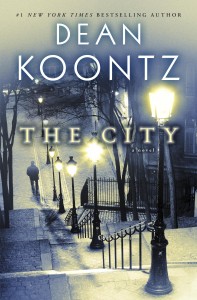 Until that time, however, Dean hopes people appreciate the story he tells in “The City,” which, despite taking place in the 1960s, is full of themes that are relevant today.
Until that time, however, Dean hopes people appreciate the story he tells in “The City,” which, despite taking place in the 1960s, is full of themes that are relevant today.
He said, “We’re living in times where it just seems the world is falling apart, and I know so many people are depressed about so many different things. [But] I lived through the `60s…[and] what really struck me was that the world was falling apart: the race riots in major cities, the war in Vietnam, it was one thing after another. I realized that we live in a fallen world. It is always going to be a tumultuous world until it’s rectified…There’s something that [the supernatural character] Miss Pearl [tells Jonah] – ‘No matter how many terrible things happen, no matter what may go wrong in this day or that day, everything will be fine in the long run.’ Now that sounds Pollyanna, but what she really means is, the long run. And that, I think, is what the book tries to tell you. Deal with the troubles you have to deal with, but don’t lose track of the beauty of the world.”
(To listen to my full two-part interview with Dean Koontz, click on the podcast links):
RELATED:
– A Grace of Softness in a Hard World: Reviewing Dean Koontz’s Novel “Innocence”

